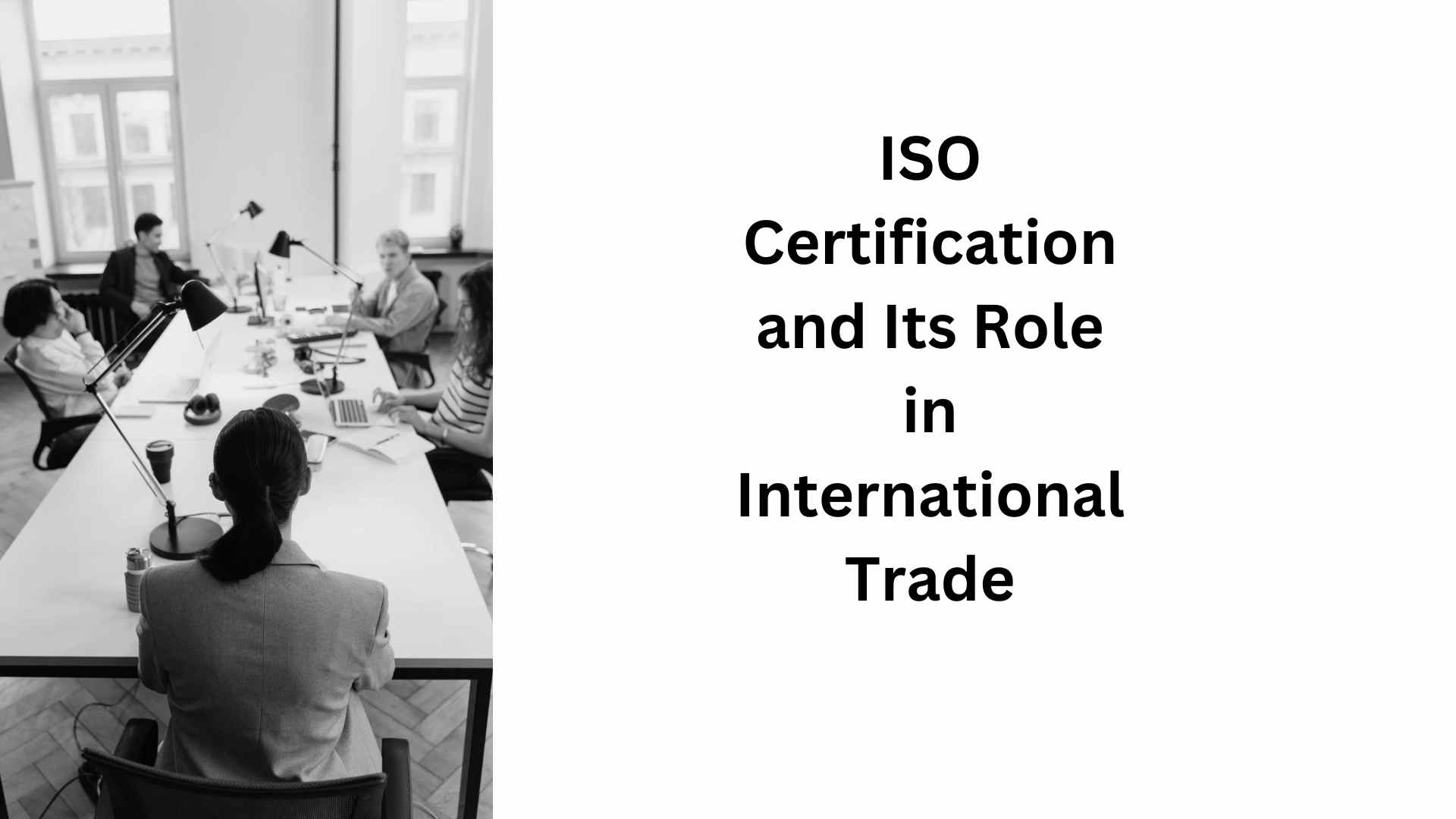Introduction
ISO (International Organization for Standardization) certification is a crucial aspect of global business practices. It establishes standardized criteria for quality, safety, efficiency, and effectiveness in various industries. For businesses engaged in international trade, ISO Certification is a regulatory formality; it serves as a strategic asset that facilitates smoother market access, enhances credibility, and fosters trust with international partners. This guide explores the role of ISO certification in international trade, detailing its benefits, impacts, and implications for businesses operating on a global scale.
Understanding ISO Certification
1. What is ISO Certification?
ISO certification is a formal recognition by an independent third party that an organization complies with a specific ISO standard. These standards are developed to ensure consistency, reliability, and quality across various sectors. Key ISO standards relevant to international trade include:
- ISO 9001: Quality Management Systems
- ISO 14001: Environmental Management Systems
- ISO 27001: Information Security Management Systems
- ISO 45001: Occupational Health and Safety Management Systems
- ISO 22000: Food Safety Management Systems
2. The Certification Process
The process typically involves:
- Application and Planning: The organization applies for certification and plans the implementation of the relevant ISO standards.
- Documentation and Implementation: Developing and documenting processes and procedures that meet the standard’s requirements.
- Audit and Review: An external auditor assesses compliance with the standard.
- Certification: Upon successful audit, the organization receives certification.
- Ongoing Compliance: Regular audits and reviews ensure continued adherence to the standards.
ISO Certification’s Impact on International Trade
1. Enhancing Market Access
. Facilitating Entry into New Markets
- Compliance Requirements: Many countries require ISO certification for businesses to enter their markets. For instance, ISO 9001 certification is often a prerequisite for trading with countries in the European Union and North America.
- Trade Agreements: ISO standards are widely recognized in international trade agreements, making it easier for certified companies to engage in cross-border trade without additional regulatory barriers.
. Meeting Regulatory Standards
- Global Standards Compliance: ISO certification helps companies comply with international regulations and standards, reducing the risk of non-compliance and penalties.
- Harmonization: ISO standards promote harmonization of regulations across different countries, facilitating smoother international trade.
2. Building Credibility and Trust
Establishing Quality Assurance
- Consumer Confidence: ISO certification signals to international clients that a company adheres to high-quality standards, enhancing customer trust and confidence in the company’s products or services.
- Reputation Management: Certified organizations are often perceived as more reliable and professional, strengthening their market reputation.
Strengthening Business Relationships
- Supplier and Partner Trust: ISO certification can improve relationships with international suppliers and partners by demonstrating a commitment to quality and compliance.
- Competitive Edge: Certification provides a competitive advantage by differentiating a business from non-certified competitors.
3. Improving Operational Efficiency
Streamlining Processes
- Process Optimization: Implementing ISO standards often leads to improved process efficiencies, which can enhance operational effectiveness and reduce costs.
- Consistency: Standardized processes ensure consistent quality and performance, which is crucial for maintaining international business relationships.
Risk Management
- Reduced Risk: ISO certification helps identify and mitigate potential risks, including those related to product safety, environmental impact, and information security.
- Compliance Assurance: It ensures adherence to legal and regulatory requirements, reducing the likelihood of costly legal disputes.
4. Enhancing Product and Service Quality
Quality Management
- Standardized Practices: ISO standards like ISO 9001 emphasize continuous improvement and quality management, ensuring that products and services meet or exceed international quality expectations.
- Customer Satisfaction: Enhanced quality management leads to higher customer satisfaction, which is vital for retaining and growing an international customer base.
Innovation and Improvement
- Continuous Improvement: ISO standards encourage a culture of continuous improvement, fostering innovation and the development of new and improved products or services.
- Benchmarking: Certification provides a benchmark for quality and performance, helping businesses set and achieve higher standards.
5. Navigating Cultural and Regulatory Differences
Cultural Sensitivity
- Global Best Practices: ISO standards incorporate global best practices, helping businesses navigate cultural differences and align their practices with international expectations.
- Adaptability: Certified organizations are often better equipped to adapt to diverse market needs and regulatory requirements.
Regulatory Alignment
- Compliance Across Borders: ISO certification helps businesses align their operations with regulatory requirements in multiple countries, simplifying the compliance process.
- Global Recognition: ISO standards are recognized worldwide, providing a universal framework that facilitates trade across borders.
Note: You can also Apply for ISO 9001 Certification from our website
Conclusion
ISO certification plays a pivotal role in international trade by enhancing market access, building credibility, improving operational efficiency, and ensuring product and service quality. It helps businesses navigate the complexities of global markets, manage risks, and comply with diverse regulatory requirements. For companies seeking to expand their global presence, ISO certification is not just a certification but a strategic tool that facilitates smoother international trade and fosters long-term success.
By adhering to internationally recognized standards, businesses can strengthen their competitive edge, build stronger relationships with international partners, and achieve sustained growth in the global marketplace. As the world of trade continues to evolve, ISO certification remains a cornerstone of successful international business practices.


